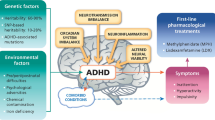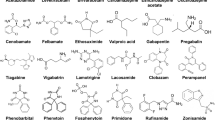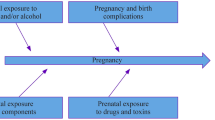Abstract
Background
Treating enuresis in children with attention deficit hyperactivity disorder (ADHD) has not been previously reported. This study aims to investigate the efficacy, tolerability, and adverse effects of nortriptyline for treating enuresis in children with ADHD.
Methods
Forty-three children aged from 5 to 14 years old were randomized into two groups. The treatment group received methylphenidate plus nortriptyline, while the placebo group received methylphenidate plus placebo. Nortriptyline and placebo were administered for 30 days and methylphenidate was administered for 45 days. The major outcome measure was parent-reported frequency of enuresis for 2 weeks prior to the intervention, during the intervention, and for 2 weeks after stopping the adjuvant therapy. Adverse effects were also checked.
Results
While nortriptyline statistically decreased the incidence of nocturnal enuresis during the intervention, the number of enuresis events did not significantly change in the placebo group. In addition, enuresis was not different from the baseline frequency of enuresis after stopping nortriptyline or placebo administration. Both nortriptyline and placebo were tolerated well.
Conclusions
Administration of nortriptyline for treating enuresis in ADHD has not been investigated before. Nortriptyline is statistically superior to placebo. However, enuresis will relapse after stopping nortriptyline in children with ADHD who continue taking methylphenidate.

Similar content being viewed by others
References
Ghanizadeh A, Mohammadi MR, Moini R (2008) Comorbidity of psychiatric disorders and parental psychiatric disorders in a sample of Iranian children with ADHD. J Atten Disord 12:149–155
Bailey JN, Ornitz EM, Gehricke JG, Gabikian P, Russell AT, Smalley SL (1999) Transmission of primary nocturnal enuresis and attention deficit hyperactivity disorder. Acta Paediatr 88:1364–1368
Baeyens D, Roeyers H, Hoebeke P, Verte S, Van Hoecke E, Walle JV (2004) Attention deficit/hyperactivity disorder in children with nocturnal enuresis. J Urol 171:2576–2579
Elia J, Takeda T, Deberardinis R, Burke J, Accardo J, Ambrosini PJ, Blum NJ, Brown LW, Lantieri F, Berrettini W, Devoto M, Hakonarson H (2009) Nocturnal enuresis: a suggestive endophenotype marker for a subgroup of inattentive attention-deficit/hyperactivity disorder. J Pediatr 155(239–244):e235
Baeyens D, Roeyers H, Demeyere I, Verte S, Hoebeke P, Vande Walle J (2005) Attention-deficit/hyperactivity disorder (ADHD) as a risk factor for persistent nocturnal enuresis in children: a two-year follow-up study. Acta Paediatr 94:1619–1625
Ghanizadeh A (2010) Comorbidity of enuresis in children with attention-deficit/hyperactivity disorder. J Atten Disord 13:464–467
Shreeram S, He JP, Kalaydjian A, Brothers S, Merikangas KR (2009) Prevalence of enuresis and its association with attention-deficit/hyperactivity disorder among U.S. children: results from a nationally representative study. J Am Acad Child Adolesc Psychiat 48:35–41
Mathew JL (2010) Evidence-based management of nocturnal enuresis: an overview of systematic reviews. Indian Pediatr 47:777–780
Neveus T, Tullus K (2008) Tolterodine and imipramine in refractory enuresis; a placebo-controlled crossover study. Pediatr Nephrol 23:263–267
Abedin Zadeh M, Moslemi MK, Kholaseh Zadeh G (2011) Comparison between imipramine and imipramine combined with pseudoephedrine in 5-12-year-old children with uncomplicated enuresis: a double-blind clinical trial. J Pediatr Urol 7:30–33
Gelotte CK, Prior MJ, Gu J (2009) A randomized, placebo-controlled, exploratory trial of Ibuprofen and pseudoephedrine in the treatment of primary nocturnal enuresis in children. Clin Pediatr (Phila) 48:410–419
Glazener CM, Evans JH, Peto RE (2003) Tricyclic and related drugs for nocturnal enuresis in children. Cochrane Database Syst Rev: CD002117
Baeyens D, Roeyers H, D’Haese L, Pieters F, Hoebeke P, Vande Walle J (2006) The prevalence of ADHD in children with enuresis: comparison between a tertiary and non-tertiary care sample. Acta Paediatr 95:347–352
Chertin B, Koulikov D, Abu-Arafeh W, Mor Y, Shenfeld OZ, Farkas A (2007) Treatment of nocturnal enuresis in children with attention deficit hyperactivity disorder. J Urol 178:1744–1747
Robaey P (2011) Commentary: enuresis and ADHD in older children and an adolescent treated with stimulant medication: a case series. J Can Acad Child Adolesc Psychiat 20:56
Williamson LB, Gower M, Ulzen T (2011) Clinical case rounds in child and adolescent psychiatry: enuresis and ADHD in older children and an adolescent treated with stimulant medication: a case series. J Can Acad Child Adolesc Psychiat 20:53–55
Ghanizadeh A (2008) Methylphenidate-associated enuresis in attention deficit hyperactivity disorder. J Pediatr Urol 4:306–307
Taurines R, Schmitt J, Renner T, Conner AC, Warnke A, Romanos M (2010) Developmental comorbidity in attention-deficit/hyperactivity disorder. Atten Defic Hyperact Disord 2:267–289
Prince JB, Wilens TE, Biederman J, Spencer TJ, Millstein R, Polisner DA, Bostic JQ (2000) A controlled study of nortriptyline in children and adolescents with attention deficit hyperactivity disorder. J Child Adolesc Psychopharmacol 10:193–204
Ghanizadeh A (2011) Overlap of ADHD and oppositional defiant disorder DSM-IV derived criteria. Arch Iran Med 14:179–182
Desta M, Hagglof B, Kebede D, Alem A (2007) Socio-demographic and psychopathologic correlates of enuresis in urban Ethiopian children. Acta Paediatr 96:556–560
Safarinejad MR (2007) Prevalence of nocturnal enuresis, risk factors, associated familial factors and urinary pathology among school children in Iran. J Pediatr Urol 3:443–452
Acknowledgments
This study was Dr. R. Haghighat’s undergraduate thesis and was supported by a grant (90-01-34-2712) under the supervision Dr. Ahmad Ghanizadeh. The Research Improvement Center of Shiraz University of Medical Sciences and Ms. A. Keivanshekouh are appreciated for improving the English in the manuscript. The authors also thank the children and their parents for their voluntary participation in this study. We also thank Dr. Soliman Mohammadi Samani for providing the placebo tablets.
Author information
Authors and Affiliations
Corresponding author
Additional information
Trial registration: This study is registered at the Iranian Registry of Clinical Trials (IRCT201111043930N16).
Rights and permissions
About this article
Cite this article
Ghanizadeh, A., Haghighat, R. Nortriptyline for treating enuresis in ADHD—a randomized double-blind controlled clinical trial. Pediatr Nephrol 27, 2091–2097 (2012). https://doi.org/10.1007/s00467-012-2211-z
Received:
Revised:
Accepted:
Published:
Issue Date:
DOI: https://doi.org/10.1007/s00467-012-2211-z




